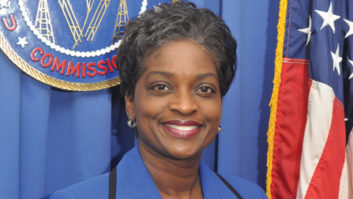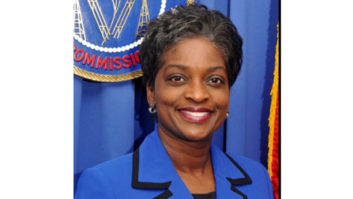
David Honig is president emeritus and senior advisor for the Multicultural Media, Telecom and Internet Council. The opinions expressed here are entirely his own.
My job today is to throw down some history that will help us answer the question, “What will a Trump FCC do to diversity in radio?”
Will Pres. Donald Trump respect the FCC’s long tradition of promoting minority ownership, procurement, equal employment, and transactional opportunity in a medium that serves all Americans? And where would he be starting from?
- Minority radio ownership has never been much to shout about. According to the FCC’s Commercial Broadcast Stations Ownership Report (issued June 2014, with data as of 2013), people of color — one-third of the nation — owned 11.2% of the nation’s AM stations and 6.1% of the nation’s FM stations. Most of these stations are small and struggling.
- AM radio, the platform of entry and the primary home of minority broadcasters, is threatened with extinction. The FCC has no comprehensive plan to rescue the band or those whose livelihoods depend on it.
- There aren’t any statistics on minority broadcast employment anymore. In 2001, the FCC stopped keeping records.
This didn’t happen overnight.
In 1932, Pres. Herbert Hoover’s Federal Radio Commission held that a Kansas City black newspaper was unqualified to hold a radio station license because it planned to serve a black audience rather than the “entire community” — an obligation never visited on white broadcasters.
Pres. Dwight Eisenhower’s FCC ruled in 1955 that a Louisiana state statute legalizing segregated movie theaters made the owner of such theaters qualified to own a TV station, even though the Section 1 of the 1934 Communications Act banned discrimination by broadcast licensees.
Civil rights champion Pres. Lyndon Johnson’s FCC lost its way in 1965 when it held that a segregationist was qualified to hold a television license, and that black listeners had no standing to challenge its license renewal application. The D.C. Circuit of the U.S. Court of Appeals eventually reversed the FCC rulings twice.
Closer to living memory for most of us was Pres. Ronald Reagan’s FCC. In 1986, it unanimously suspended two of the three minority ownership policies, without prior notice or warning, on the grounds that white people were being held back from getting their fair share of broadcast licenses. At the time, white people held only 98% of the broadcast licenses.
And now we come to Pres. Barack Obama’s second term. On the plus side:
- The Obama FCC relaxed the 104-year old xenophobic restrictions on foreign investment in broadcasting, opening new sources of capital and new overseas markets for U.S. broadcasters. This was actually done unanimously in the FCC’s first public meeting after the 2012 election.
- Perhaps the Obama FCC’s greatest achievement in broadcast policy was its 2015 bipartisan initiative to provide desperately needed relief to AM stations, including opening two new AM-only translator windows.
But on the other side:
- They killed the Federal Advisory Committee on Diversity. Think about that. What are the priorities of an agency that goes out of its way to kill an advisory committee on diversity that had previously enjoyed the enthusiastic support of two Republican and two Democratic administrations?
- Refused to extend the cable equal procurement rule to broadcasting and other technologies — defying the Third Circuit of the U.S. Court of Appeals. This rule simply requires broad outreach — like having a Request for Proposals disseminated widely enough so minority- and women-owned businesses will find out about it in time to submit bids for the work. It’s constitutionally noncontroversial. MMTC and the National Association of Black Owned Broadcasters (NABOB) have had to take the FCC to court over this.
- And finally, and it pains me so deeply to have to report this, the current FCC refused to require emergency, life-saving hurricane warnings to be broadcast over the radio in languages other than English. In doing this, the FCC failed even to mention the unanimous, 24–0, recommendation of its own Hurricane Katrina Advisory Committee. Who in the world sets out to write an actual opinion authorizing the continued absence of in-language information to Spanish-speaking and Asian language-speaking families in a hurricane? And yes, MMTC and the League of United Latin American Citizens (LULAC) and dozens of friends of the court have had to appeal to get this overturned.
So are things going to go from disappointing to worse? Perhaps not. We might be in for a surprise.
We know the Trump FCC transition team members and the Republican FCC commissioners well. Based on their interests and past positions, we can envision four radio issues where, if we’re really vigilant, if we engage early and often, we might be able to make some progress:
First: Application of the cable procurement rule to radio, TV and other technologies. All of the Trump FCC transition team members and Republican FCC commissioners favor “platform neutrality,” and none has been hostile to broad outreach and nondiscrimination protections.
Second: Minority ownership initiatives, particularly through such mechanisms as improving services where minority entrepreneurs are heavily invested, such as program creation, syndication, and distribution.
Third: Some overdue deregulation of the radio market definition, minimum station personnel levels, and some public file rules.
Fourth: A comprehensive plan for AM owners to transition their programming to other technologies without devastating economic consequences as AM inevitably continues to lose aggregate market share.
At the same time as we have goals, we must also have realism. Over the next four years, civil rights in housing, education, health care, and voting rights are going to be constantly under siege.
But communications policy might be different. If we hold the new administration accountable for diversity, inclusion, and job creation, I believe we can make far more progress than we thought we’d make on Nov. 9, when many of us spent the morning trying to decide which would be the better place to move, “Canada, or Jamaica?”
Finally, civil rights supporters in our industry must never underestimate the power and persuasiveness of our advocacy, our organizing and our prayers. Let’s remember that over time, we reversed all of the awful things you just read about in this post that the commission did under the Hoover, Eisenhower, Johnson and Reagan FCCs. That is living proof that Martin Luther King Jr., was absolutely correct when he declared that “the arc of the moral universe is long, but it bends towards justice.”
RW welcomes other points of view about this and any article. Email [email protected] with “Letter to the Editor” in the subject field, or post a comment using the Disqus tool below.












